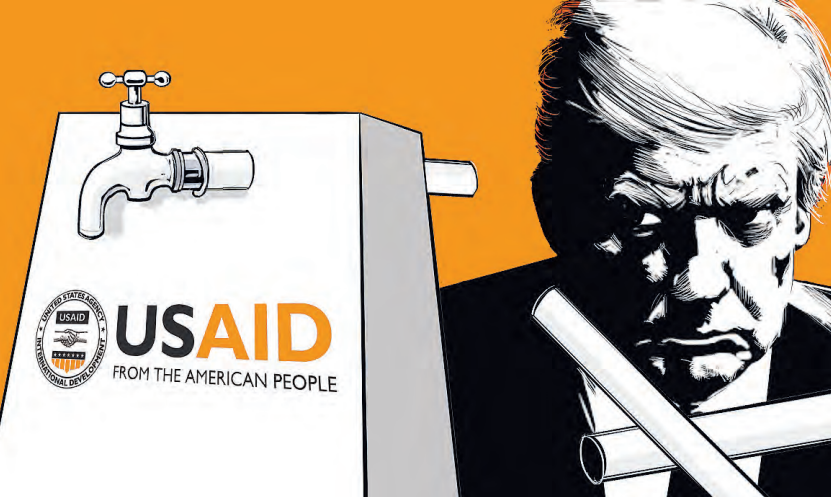

For many years now, Kenyans working in the NGO sector have associated the struggle for the advancement of human rights with the United States Agency for International Development.
It is true that there are any number of philanthropic foundations and other donor organisations active in this field and giving away substantial sums.
But USAID just seemed to have more money than any other organisation, and so they had a very large presence in what is nowadays called “the human rights space”.
Now those days are over. And it’s not just that President Donald Trump seems set to put an end to a lot of the programmes that USAID has been supporting in countries like Kenya.
The bigger picture seems to suggest that there is no longer a consensus in US official circles that America has a duty and responsibility to encourage developing nations to entrench the kind of civic and other individual rights that American citizens take for granted.
It’s not just human rights programmes, of course.
For about two decades now, USAID has generously funded the fight against HIV-Aids through the President’s Emergency Plan for AIDS Relief (Pepfar) in Kenya.
And there are various other USAID programmes that provide support for agriculture, commerce and various other sectors.
Such programmes have been going on for over 60 years now, and so – predictably – they have created a sense of entitlement among many Kenyans who benefit from such programmes.
If you ask the average Kenyan whether he or she is aware that the whole concept of foreign aid only gained traction in the 1940s, especially after the end of the Second World War, I doubt if one in 10 would know this.
And yet prior to this time, there were effectively no such routine transfers of “development aid” from rich countries to poor ones, with the only exceptions being funds given to address national emergencies.
Now we are so used to such assistance, that even so well-informed a person as a South African Cabinet minister could be quoted on the influential ‘Semafor’ online news service as follows: “US President Donald Trump, in a social media post, accused South Africa of “confiscating land, and treating certain classes of people VERY BADLY.”
Trump, whose key ally billionaire Elon Musk was raised in South Africa, added: “I will be cutting off all future funding to South Africa until a full investigation of this situation has been completed!” ... “If [the US] don’t give us money, let’s not give them minerals,” Mineral Resources minister Gwede Mantashe said...”
This surely amounts to saying that African nations – and specifically South Africa, in this case – are entitled to the kind of funding that USAID gives.
And what South Africa has been receiving from Pepfar is not exactly peanuts either.
South Africa has the world’s largest HIV treatment programme, with roughly six million people on antiretroviral therapy.
Even for a mineral-rich country like South Africa, that level of intervention would not have been possible without substantial support from Pepfar.
Although South Africa has made serious eff orts to reduce its dependency on Pepfar funding, Pepfar still continues to provide support to the tune of hundreds of millions of dollars annually, to the South African HIV-Aids intervention programmes.
I have used South Africa as an example to illustrate just how eff ective some of the programmes supported by USAID have been, and how many lives they have saved.
But at the end of the day, the public health budget of any country is not really the business of its richer friends. In matters like health and education, each country has to look after its own, as best it can.
If there is any criticism to be levelled at President Trump in this matter, it is that it is very cruel to stop this kind of crucial funding so abruptly.
And that he should allow for a transition period (which, apparently, he has since decided to do).
But Americans do not owe it to us to meet the costs of our most important public health interventions; or – for that matter – our struggles against the erosion of human rights.











